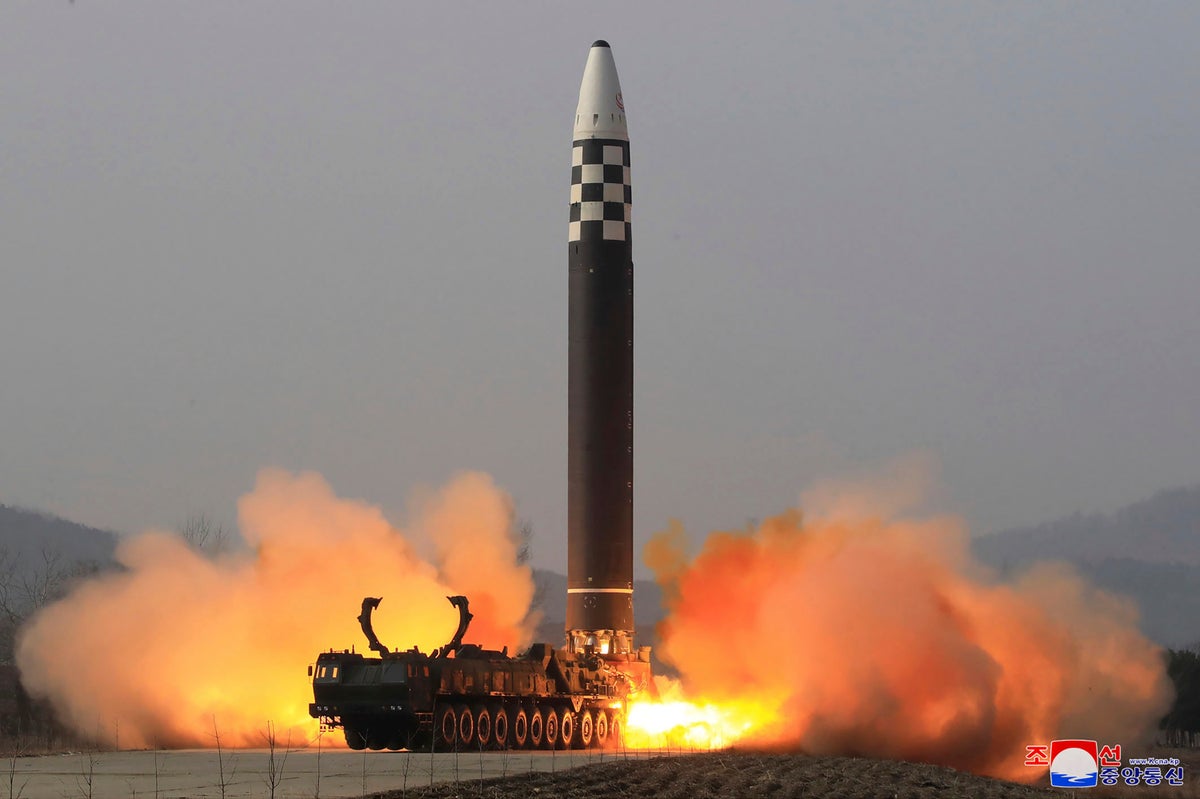
The United States and its allies clashed with China and Russia on Friday over North Korea’s escalating ballistic missile launches and American-led military exercises in South Korea, again preventing any action by the deeply divided U.N. Security Council.
U.S. Ambassador Linda Thomas-Greenfield said North Korea’s “staggering 59 ballistic missile launches this year,” including 13 since Oct. 27 and one that made an “unprecedented impact” about 50 kilometers (30 miles) from South Korea’s shore, are about more than advancing Pyongyang’s military capabilities and seek to raise tensions and stoke fear in its neighbors.
She said 13 of the 15 Security Council members have condemned North Korea’s actions since the beginning of the year, but Pyongyang has been protected by Russia and China who have “bent over backwards” to justify repeated violations of U.N. sanctions by the Democratic People’s Republic of Korea, or DPRK, the country’s official name.
“And, in turn, they have enabled the DPRK and made a mockery of this council,” she said.
China’s U.N. Ambassador Zhang Jun countered that the DPRK missile launches are directly linked to the re-launch of large-scale U.S.-South Korean military exercises after a five-year break, with hundreds of warplanes involved. He also pointed to the U.S. Defense Department’s 2022 Nuclear Posture Review which he said envisages the DPRK’s use of nuclear weapons and claims that ending the DPRK regime is one of the strategy’s main goals.
Russia’s deputy U.N. ambassador Anna Evstigneeva blamed the significantly worsening situation on the Korean peninsula on “the desire of Washington to force Pyongyang to unilaterally disarm by using sanctions and exerting pressure and force.”
She called the U.S.-South Korean exercises that began on Oct. 31 unprecedented in size, with about 240 military aircraft, and claimed they are “essentially a rehearsal for conducting massive strikes on the territory of the DPRK.”
America’s Thomas-Greenfield responded to claims by China and Russia that the military drills were stoking tensions on the Korean peninsula saying: “This is nothing but a regurgitation of DPRK propaganda.” She said the longstanding defensive military exercises “pose no threat to anyone, let alone the DPRK.”
“In contrast, just last month, the DPRK said its flurry of recent launches were the simulated use of tactical battlefield nuclear weapons to `hit and wipe out’ potential U.S. and Republic of Korea targets,” she said. “The DPRK is simply using this as an excuse to continue to advance its unlawful programs.”
The Security Council imposed sanctions after North Korea’s first nuclear test explosion in 2006 and tightened them over the years seeking to rein in its nuclear and ballistic missile programs and cut off funding. In May, however, China and Russia blocked a Security Council resolution that would have toughened sanctions over the missile launches, in the first serious rift on the council over the sanctions against North Korea.
That rift remains and appears to have grown deeper, but Russia, China and the United States did agree on one thing: the need for renewed talks and a diplomatic solution to the growing crisis on the Korean peninsula.
China’s Zun called on the United States “to stop unilaterally playing up tensions and confrontation” and respond “to the legitimate and reasonable concerns of the DPRK to create conditions for the resumption of meaningful dialogue.” And he said the Security Council, rather than seeking additional pressure on the DPRK, should contribute “to the restart of dialogue and negotiation and resolving the humanitarian and livelihood difficulties faced by the DPRK.”
Russia’s Evstigneeva said further sanctions would threaten North Korean citizens “with unacceptable social, economic and humanitarian upheavals,” and reiterated the need “for preventive diplomacy and the importance of finding a political diplomatic solution and real steps by Washington, more than just promises to establish substantive dialogue.”
Thomas-Greenfield said even in the face of the DPRK’s escalating missile launches, “the United States remains committed to a diplomatic solution” and has conveyed its request to the DPRK for talks at all levels of the U.S. government.
“Despite a lack of engagement from Pyongyang, we will continue to pursue meaningful dialogue,” she said.







